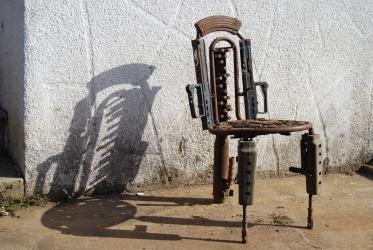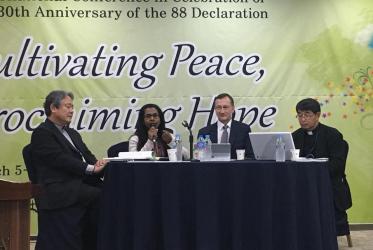Displaying 1 - 9 of 9
Paving the way for ecumenical studies, learning English in Bossey
24 September 2018
WCC welcomes “powerful sign of hope” on Korean Peninsula
08 March 2018
May we remember them well, with dignity and respect
14 December 2017
Emily Welty: tide of hope for a world free from nuclear weapons
19 September 2017




